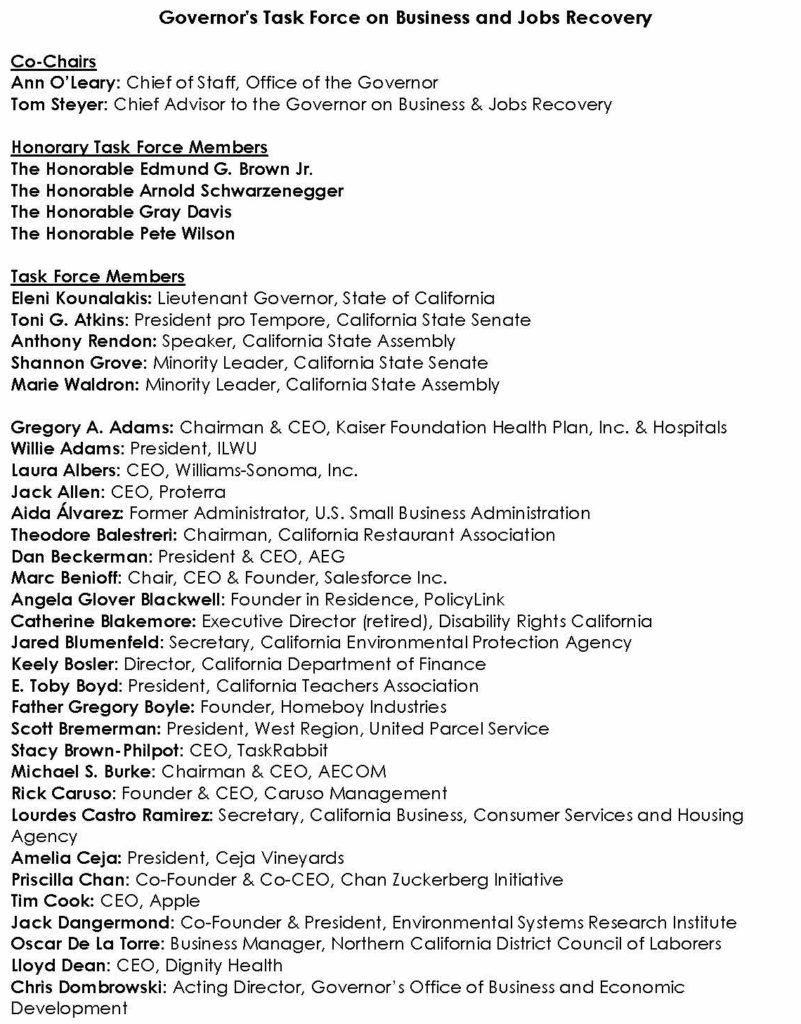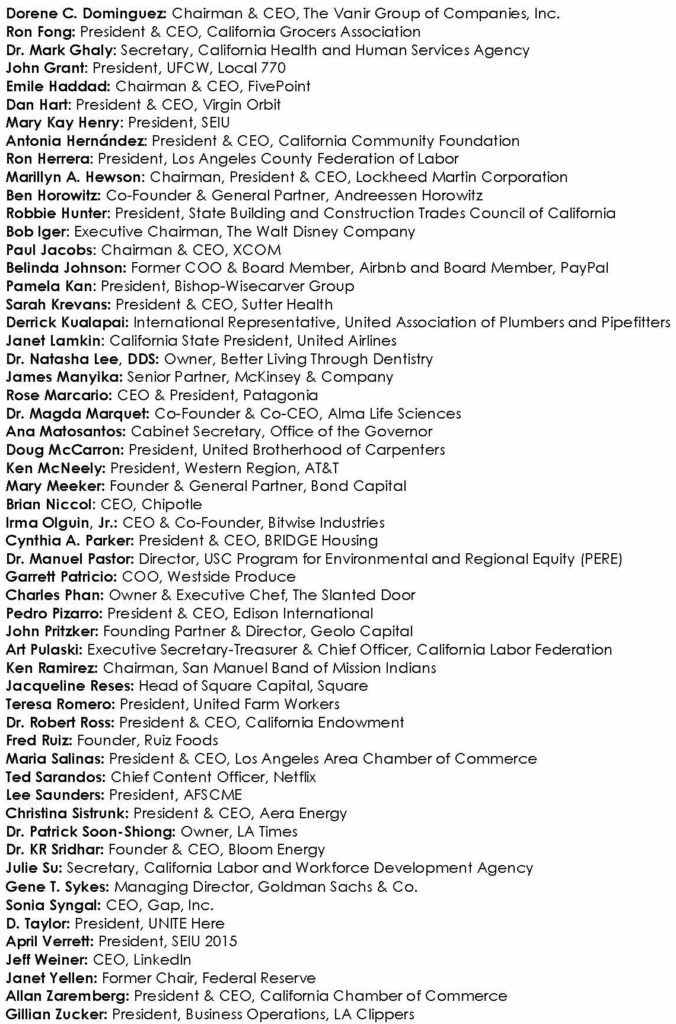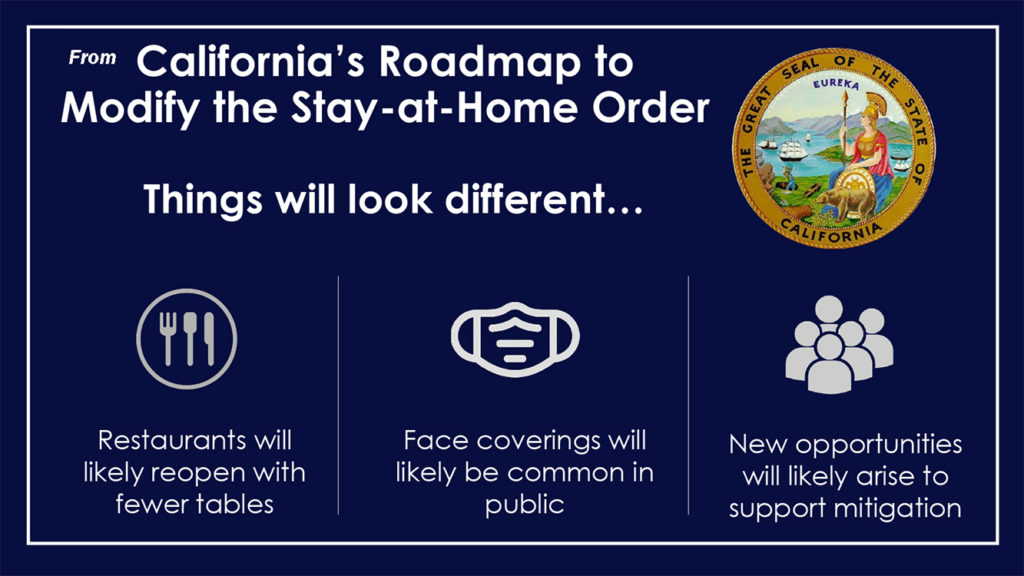The order also addresses background checks for essential workers
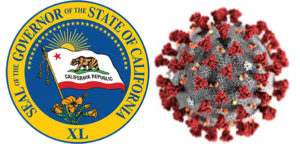 SACRAMENTO (Apr 16, 2020) – On Thursday, Governor Gavin Newsom signed an executive order addressing a variety of issues in response to the COVID-19 pandemic, including adjusting admissions requirements for the California State University system and providing flexibility for 60 days on background checks for critical infrastructure sectors. (See the entire order, below).
SACRAMENTO (Apr 16, 2020) – On Thursday, Governor Gavin Newsom signed an executive order addressing a variety of issues in response to the COVID-19 pandemic, including adjusting admissions requirements for the California State University system and providing flexibility for 60 days on background checks for critical infrastructure sectors. (See the entire order, below).
Specifically, the CSU system will be able to waive hearing requirements to be able to make adjustments to admissions criteria for students applying this coming fall to enter as freshmen in the fall of 2021.
Additionally, the order will allow the California Department of Justice to develop procedures to perform name-based background checks to protect health and safety and avoid delays in processing employment for critical sectors, such as health care services and care and support for vulnerable populations.
The executive order also will allow federal stimulus checks to flow directly to custodial parents owed back child support payments and will additionally allow for commercially licensed food trucks to be able to temporarily operate in roadside rest areas for a period of 60 days, to ensure essential infrastructure workers have access to food. Caltrans will be charged with developing and implementing a process to administer the temporary permits.
The text of the Governor’s executive order can be found here and a copy can be found here.
Learn more about the state’s ongoing COVID-19 response efforts here. Visit covid19.ca.gov for critical steps Californians can take to stay healthy, and resources available to those impacted by the outbreak.
EXECUTIVE ORDER N-52-20
WHEREAS on March 4, 2020, I proclaimed a State of Emergency to exist in California as a result of the threat of COVID-19; and
WHEREAS despite sustained efforts, COVID-19 continues to spread and is impacting nearly all sectors of California; and
WHEREAS the COVID-19 pandemic and the necessary physical distancing measures implemented have affected governmental agencies, workers, private businesses, and California residents alike, with associated impacts on adherence to certain statutory and regulatory deadlines; and
WHEREAS a shortage of fingerprinting services has arisen in California despite those services being included among the essential critical infrastructure sectors identified pursuant to Executive Order N-33-20, and this shortage is impacting other essential critical infrastructure sectors, including the healthcare sector and other programs that provide care and support to vulnerable Californians; and
WHEREAS to prevent potential impairment of delivery of critical healthcare services and of care and support for vulnerable populations, the California Department of Justice, working in concert with the California Health and Human Services Agency and other agencies and departments, is developing procedures to perform name-based criminal background checks, consistent with Penal Code sections 11105.7 and 11105.75, and subject to certain conditions, including a requirement that each applicant’s identity and criminal history be verified by fingerprints as soon as practicable after an initial check based on other identifying information has been performed; and
WHEREAS individuals who are tested for COVID-19 should have access to test results, and important information on test interpretation, isolation, and care guidance, in an expeditious and deliberate manner; and
WHEREAS illness due to COVID-19 and physical distancing requirements imposed to limit spread of the virus impede the ability of the California Coastal Commission, the State Water Resources Control Board, members of the public, and others to meet certain time limits set forth in the Permit Streamlining Act and the Public Resources Code; and
WHEREAS the COVID-19 pandemic and subsequent school closures has disrupted the lives and educational progress of K-12 students, impacting their ability to meet existing admissions prerequisites for the California State University system; and
WHEREAS it is important that the trucking industry have access to food at highway rest areas while maintaining the critical supply chain throughout this state; and
WHEREAS federal financial relief provided under the Coronavirus Aid, Relief and Economic Security Act (CARES Act) should be made swiftly available to individuals who would otherwise be entitled to it—including custodial parents and other caregivers entitled to past due support—notwithstanding state law providing that certain federal tax refund offsets should first be applied to support owed to the State; and
WHEREAS under the provisions of Government Code section 8571, I find that strict compliance with various statutes and regulations specified in this order would prevent, hinder, or delay appropriate actions to prevent and mitigate the effects of the COVID-19 pandemic.
NOW, THEREFORE, I, GAVIN NEWSOM, Governor of the State of California, in accordance with the authority vested in me by the State Constitution and statutes of the State of California, and in particular, Government Code sections 8567, 8571, and 8627, do hereby issue the following Order to become effective immediately:
IT IS HEREBY ORDERED THAT:
1) The timeframes set forth in Business and Professions Code, Division 4, Part 1, Chapter 3, Article 2 (Section 10150, et seq.) are hereby extended for a period of 60 days. The deadlines specified in Business and Professions Code, Division 4, Part 1, Chapter 3, Article 4 (Section 10200, et seq.), related to payment of real estate license application, and renewal fees, are hereby extended for a period of 60 days. 2) The timeframes set forth in the Business and Professions Code Division 4, Part 1, Chapter 3, Article 2.5 (Section 10170 et seq.), relating to continuing education requirements for real estate licensees, are hereby extended for a period of 60 days.
3) The deadlines specified in existing Orders issued by the Real Estate Commissioner pursuant to Business and Professions Code, Division 4, Part 1 are hereby extended for a period of 60 days.
4) The June 1, 2020 deadline specified in Education Code section 8434(g), related to the election of a representative for family childcare providers, is extended to August 1, 2020.
5) The requirements specified in Harbors and Navigation Code section 1176 and in California Code of Regulations, title 7, sections 217.5 and 217.10 that a pilot be found fit-for-duty as a condition of having his or her license renewed and that a pilot trainee be found fit-for-duty to be allowed to continue in the training program are temporarily waived. The temporary waiver of a fit-for-duty determination applies to pilots whose license expires between April 1, 2020, and July 31, 2020, and to trainees whose anniversary of admission to the training program falls between these same dates. These fit-for-duty requirements must be satisfied by December 31, 2020, unless this Order is further extended.
6) The training requirements specified in California Code of Regulations, title 7, section 215 relating to continuing education for pilots are temporarily waived for those pilots required to complete training in 2020. These pilots must satisfy these waived training requirements by June 30, 2021, unless this Order is further extended.
7) The three-year maximum length of the training program for pilot trainees specified in Harbors and Navigation Code section 1171.5 (c) and California Code of Regulations, title 7, section 214 (c) is extended by one year for trainees who have been unable to train on vessels because of the COVID-19 pandemic.
8) The provisions of California Vehicle Code section 2501 requiring all licenses issued to privately owned or operated ambulances used to respond to emergency calls, privately owned armored cars, and fleet owner inspection and maintenance stations that expire one year after the licenses are issued are hereby extended for a period of 60 days from the license expiration date. This extension is applicable to licenses expired on or after March 4, 2020, or will expire within 60 days from the date of this Order.
9) For holders of current commercial driver’s licenses or certificates, whose required medical certificate has or will expire on or after March 1, 2020, the timeframes set forth in Vehicle Code section 12804.9(c), and accompanying regulations, pertaining to possessing a valid medical certificate in order to maintain a valid commercial driver license or certificate, are waived until June 30, 2020.
10) The time limits set forth in the Permit Streamlining Act in Government Code sections 65943, 65950, 65952, and 65956, and in Public Resources Code sections 30512, 30513, 30603, 30606, 30621, 30622, 30625, 30714, and 30812 are suspended, with respect to actions by or matters before the California Coastal Commission or the State Water Resources Control Board, for a period of 60 days. This paragraph pauses the time limits in the referenced sections but does not restart them, and should be construed to toll those timeframes for 60 days, such that no time should be counted for 60 days, but that any days that elapsed prior to this suspension are still counted.
11) To the extent any provision of state law might restrict the exercise of the California Department of Justice’s authority to conduct criminal background checks pursuant to Penal Code section 11105 based on identifying information other than fingerprints for individuals performing tasks that require licensure pursuant to pursuant to Division 2 of the Business and Professions Code or providing services or care pursuant to the California Community Care Facilities Act (Chapter 3 of Division 2 of the Health and Safety Code), the California Residential Care Facilities for the Elderly Act (Chapter 3.2 of Division 2 of the Health and Safety Code), the California Child Day Care Facilities Act (Chapter 3.4 of Division 2 of the Health and Safety Code) or In-Home Supportive Services (Article 7 of Chapter 3 of Part 3 of Division 9 of the Welfare and Institutions Code and Welfare and Institutions Code sections 14132.95, 14132.952, and 14132.956), those provisions are suspended for a period of 60 days.
12) To the extent any provision of state law might restrict the exercise of the California Department of Justice’s authority to waive or eliminate the applicable fee for a criminal background check conducted pursuant to Paragraph 11, those provisions are suspended for a period of 60 days. 13) Health and Safety Code section 123148(b)(1) is suspended to the extent it requires a health care professional to review COVID-19 test results before those test results may be disclosed to a patient via the Internet or other electronic means, on the condition that any such disclosure must be conducted in accordance with an order of the State Public Health Officer or a local public health officer, and with guidance issued by the California Department of Public Health pursuant this paragraph. The California Department of Public Health shall issue guidance concerning large-scale COVID-19 testing, as well as appropriate test interpretation, isolation, and care measures to be undertaken in conjunction with such testing.
14) All requirements in Education Code section 89030.5, which permits a change in the criteria for admission to a California State University campus to become effective only after public hearings have been held and only after a period of at least six months or one year (as applicable) has elapsed after that change is approved by the chancellor, are waived through June 30, 2021.
15) The restrictions for commercial activities in safety roadside rest areas specified in Streets and Highways Code sections 225 and 225.5 and Vehicle Code sections 22518, 22520.5 and 22520.6, and accompanying regulations, are suspended for a period of 60 days, to the extent necessary to allow commercially licensed food trucks to operate and sell food in designated safety roadside rest areas in compliance with a temporary permit issued by Caltrans. Caltrans is authorized to develop and implement a process to issue and administer temporary permits allowing commercially licensed food truck vendors that otherwise are in compliance with state and local licensing and permitting requirements to operate and sell food in designated safety roadside rest areas. The development and implementation of this process shall not be subject to the Administrative Procedure Act, Government Code section 11340 et seq.
16) Code of Civil Procedure section 695.221(e), concerning credits to the State from certain collections received from federal tax refund offsets when the recipient of such a refund owes past due support, is suspended.
IT IS FURTHER ORDERED that as soon as hereafter possible, this Order be filed in the Office of the Secretary of State and that widespread publicity and notice be given of this Order.
This Order is not intended to, and does not, create any rights or benefits, substantive or procedural, enforceable at law or in equity, against the State of California, its agencies, departments, entities, officers, employees, or any other person.
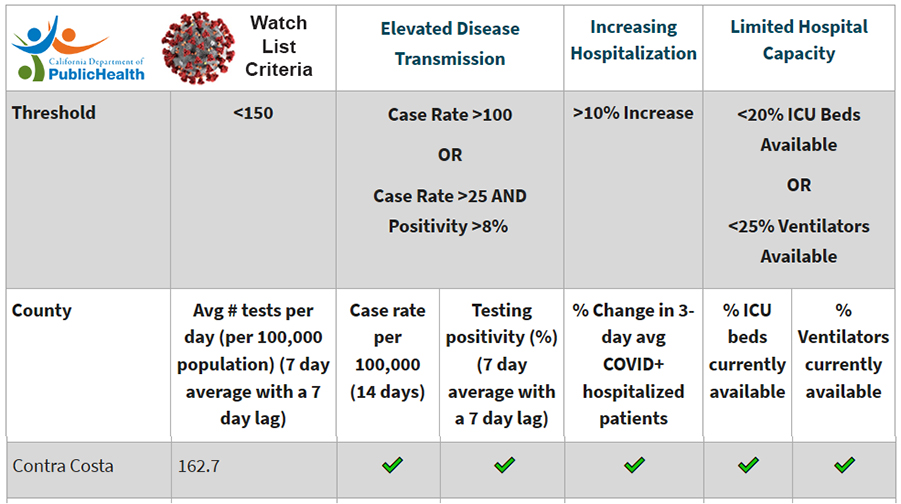











 SACRAMENTO — On Tuesday, June 30, 2020 California Governor Gavin Newsom issued an executive order extending authorization for local governments to halt evictions for renters impacted by the COVID-19 pandemic, through September 30. Currently Contra Costa County’s urgency ordinance preventing evictions and rent increases expires on July 15.
SACRAMENTO — On Tuesday, June 30, 2020 California Governor Gavin Newsom issued an executive order extending authorization for local governments to halt evictions for renters impacted by the COVID-19 pandemic, through September 30. Currently Contra Costa County’s urgency ordinance preventing evictions and rent increases expires on July 15. As part of the federal
As part of the federal 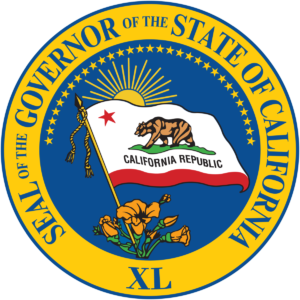 SACRAMENTO (April 17, 2020) – Bringing together leaders across California’s diverse, innovative economic and social sectors to chart a path forward on recovery in the wake of COVID-19, Governor Gavin Newsom today announced the formation of a state Task Force on Business and Jobs Recovery. The Task Force will be co-chaired by Governor Newsom’s Chief of Staff Ann O’Leary and philanthropist, environmentalist and businessman Tom Steyer, who was also appointed Chief Advisor to the Governor on Business and Jobs Recovery. He will receive no compensation for his service.
SACRAMENTO (April 17, 2020) – Bringing together leaders across California’s diverse, innovative economic and social sectors to chart a path forward on recovery in the wake of COVID-19, Governor Gavin Newsom today announced the formation of a state Task Force on Business and Jobs Recovery. The Task Force will be co-chaired by Governor Newsom’s Chief of Staff Ann O’Leary and philanthropist, environmentalist and businessman Tom Steyer, who was also appointed Chief Advisor to the Governor on Business and Jobs Recovery. He will receive no compensation for his service.